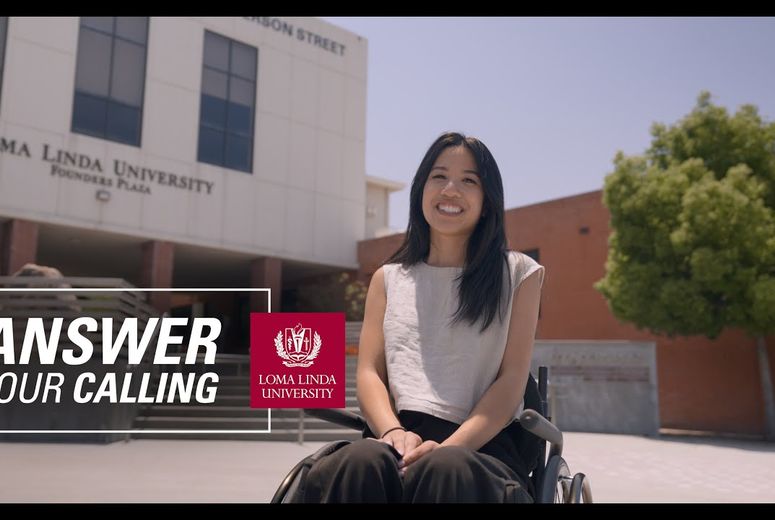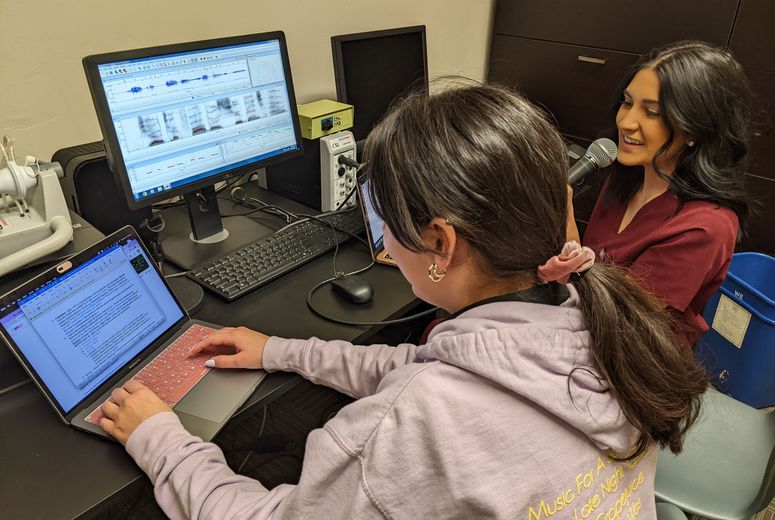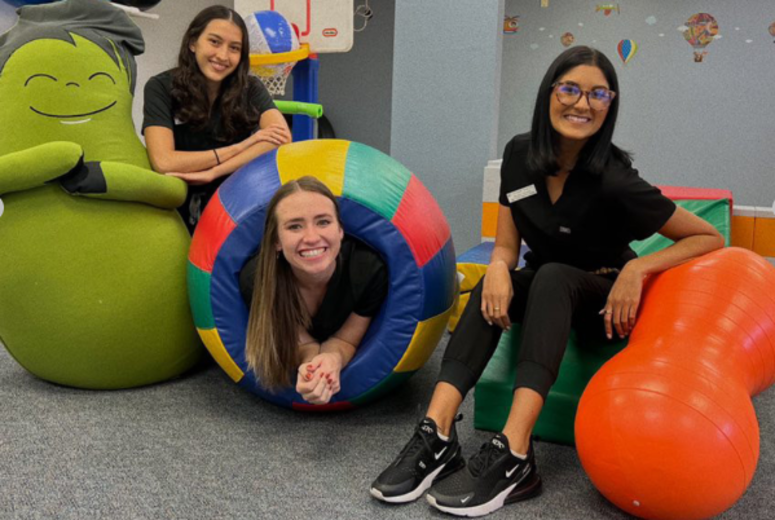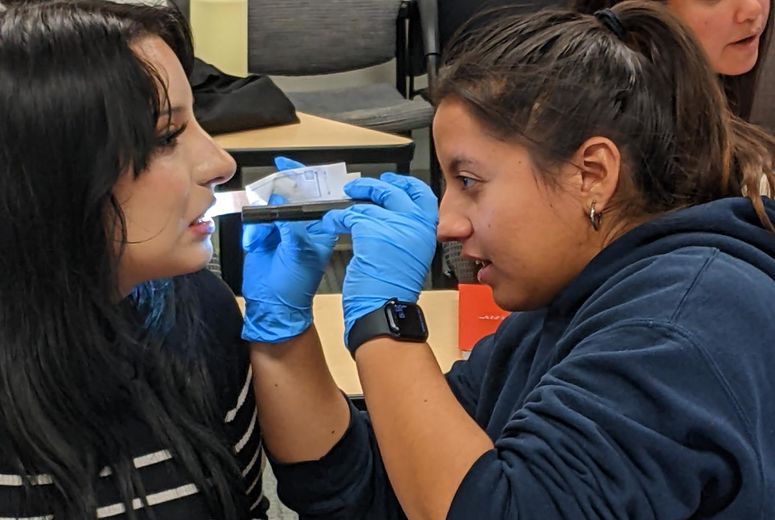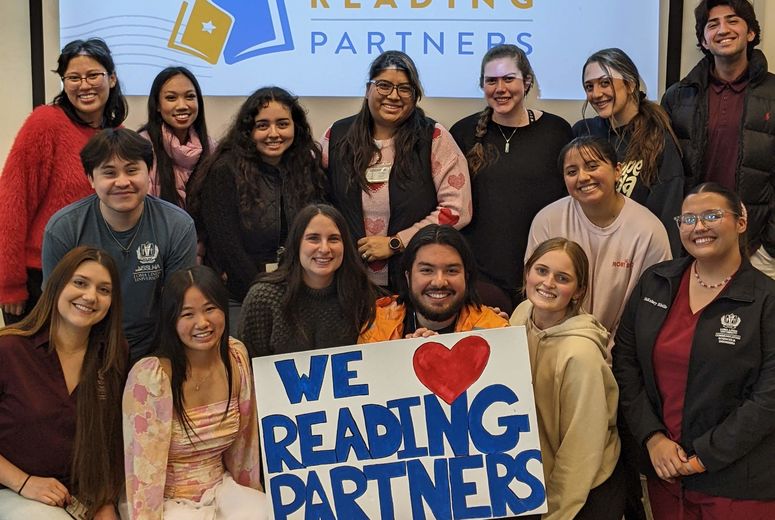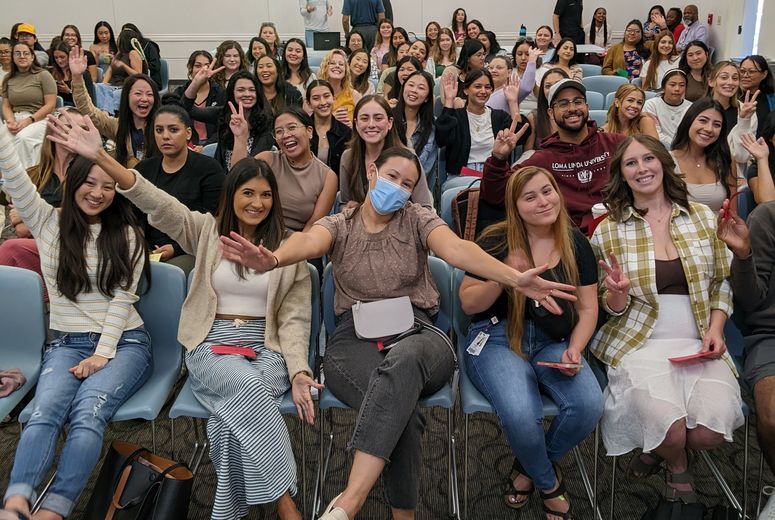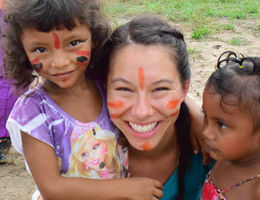
In-Person or Online
Welcome!
The BS in Communication Sciences and Disorders program is now offered both in-person and online, providing a flexible, student-centered learning experience for those near and far! With small class sizes (maximum 25 students) and a low student-to-faculty ratio (1:6 for incoming junior classes), students receive personalized instruction and mentorship. The program includes SLPA fieldwork opportunities which may be completed locally; however, students intending to apply for licensure in a state other than California are responsible for identifying and meeting the state's specific licensure guidelines. In-person students can further enhance their training through an optional clinical experience. Additionally, local students can participate in service trips, such as those to Mexico, applying their skills in real-world settings while making a meaningful impact.
About Our Program
Beginning in the junior year, students engage in specialized coursework and hands-on training, preparing for careers in speech-language pathology. Coursework is integrated with senior-year practical experience and SLPA fieldwork opportunities which may be completed locally. Many graduates continue to master’s programs in Speech-Language Pathology or related fields, taking the next step toward certification as Speech-Language Pathologists.
Request INFORMATION Schedule a Consultation
Why Choose LLU's B.S. in Communication Sciences and Disorders program?
- Individualized Support: 1:6 faculty-to-student ratio fosters personalized mentorship and direct collaboration with experienced professionals.
- Career-Ready Education: Whether online or in-person, our program equips students with the knowledge and applied skills needed for SLPA licensure. Having gained knowledge and training through problem-based learning and structured fieldwork, students graduate ready to make an immediate impact in the field of communication sciences and disorders.
- Global & Community Impact: Through international collaborations and service trips, students apply classroom knowledge in real-world settings, providing care to diverse populations while enhancing their clinical skills.
Program Overview
Admissions Requirements & Prerequisites
Admissions
- 96 quarter units or 64 semester units in general education
- Provide official transcripts from an accredited institution
- Literate personal statement (part of the online application)
- Three letters of recommendation, preferably academic. (part of the online application)
- Minimum GPA of 3.0
For more Admissions information please visit our Admissions page.
Prerequisites
| Domain 1: Spiritual Life & Wholeness (min. of 8 quarter units) | Religion: Must complete an average of 4 quarter units of religion for each year of residence at Loma Linda University. All required religion must be taken at Loma Linda University. |
| Domain 2: Arts & Humanities (min. of 16 quarter/11 semester units) | Select courses from at least 3 of the following content areas: Civilization/history, art, literature, modern language, philosophy, religion, or general humanities elective. If a student takes Religion courses from other institutions, it will be counted in this domain.
|
| Domain 3: Scientific Inquiry & Quantitative Reasoning (min. of 12 quarter/8 semester units) | Natural Sciences. At least one natural science course must include a lab component.
|
| Domain 4: Social Sciences (min. of 12 quarter/8 semester units) | Select courses from two of the following content areas: Anthropology, economics, geography, political sciences, psychology, and sociology. Includes one course (or components integrated into several courses) in human (cultural) diversity. |
| Domain 5: Written & Oral Communication (9-13 quarter/ 6-9 semester units) |
|
| Domain 6: Health & Wellness (2 to 6 quarter/1.5 to 4 semester units) |
|
| Domain 7: Electives: All other transferable coursework |
PLEASE NOTE: “C minus” grades are not transferable for credit |
Application Process & Program Resources
Applying to the Program
Applications are accepted October 1st- June 1st.
Sending Transcripts
EDI
Transcripts sent using the EDI (electronic data interchange) format must be sent through the SPEEDE server.
LLU School Code: 001218
EDI Qualifier: 22
Server: SPEEDE
Secure PDF
We accept secure PDFs sent directly to [email protected] through transcript services. If the PDF has restrictions on printing, viewing, saving or archiving, it will not be accepted. Examples of acceptable PDFs include those sent through:
- Parchment Exchange
- Credentials eScrip-Safe
- National Student Clearinghouse
- Joint Services Transcript (for U.S. military credit)
Mail
We accept paper transcripts mailed or shipped directly from your school to Admissions Processing.
Admissions Processing
Loma Linda University
11139 Anderson St
Loma Linda, CA 92350 USA
If you experience difficulty having your institution, send transcript directly to us, please contact us and we will provide you with an official letter of request.
- Applications are reviewed by the departmental faculty as they are received. The applicant's request for admission will not be reviewed until the applicant's file contains the necessary documents. The program faculty evaluates the application and makes its recommendation to the School of Allied Health Professions Admissions Committee. Admissions remain open until the class is full.
Resources
- Program Brochure
- View our Strategic Plan- The Strategic Plan was developed by the faculty to address long term goals for all of the programs housed within the Department of Communication Sciences and Disorders. It is our action plan for implementing the department’s Mission, Purpose and Vision.
- University Catalog- The current school year catalog, along with previous years' catalogs are available online here.
Degree Requirements & Outcomes
Degree requirements for the BS include completion of:
- The general education requirements.
- The Communication Sciences and Disorders program of instruction.
- Sufficient electives to meet the 192 quarter units required for graduation.
Program of Instruction
Junior Year
- CMSD 284 Intro to Speech‐Language Pathology and Audiology (3)
- CMSD 314 Language Science (4)
- CMSD 318 Transcription Phonetics (3)
- CMSD 324 Language Disorders of Children (4)
- CMSD 334 Speech Sound Disorders in children 4)
- CMSD 376 Anatomy of Speech and Hearing Mechanism (4)
- CMSD 388 Communication Across the Lifespan (4)
- CMSD 436 Speech & Hearing Science
- CMSD 446 Instruction in American English Dialects (2)
- CMSD 454 Introduction to Audiology (4)
- CMSD 485 Clinical Methods in Speech‐Language Pathology (4)
- CMSD 486 Diagnostic Methods in Speech‐Language Pathology (4)
Senior Year
- CMSD 217 Beginning Sign Language (3)
- CMSD 267 Speech Language Pathology Assistant Fieldwork
- CMSD 424 Adult Language Pathology (4)
- CMSD 426 Behavior Management Applications with Special Populations (4)
- CMSD 448 Disorders of Fluency (3)
- CMSD 449 Voice Disorders (3)
- CMSD 464 Introduction to Aural Rehabilitation (4)
- CMSD 467 Speech‐Language Pathology and Audiology Practicum (1‐4)
- CMSD 477 Bilingualism & Biculturalism (2)
- CMSD 488 Autism Spectrum Disorders (4)
Required Cognates
- AHCJ 305 Infectious Diseases and the Healthcare Provider (1)
- AHCJ 328 Wholeness Portfolio I (1)*
- AHCJ 471 Statistics and Research for the Health Professionals I (3)
- AHCJ 472 Statistics and Research for the Health Professionals II(3)
- AHCJ 498 Wholeness Portfolio II(1)*
- PSYC 460 The Exceptional Individual(3)
- Religion (8)
To count toward graduation, a minimum grade of C (2.0) is required for all courses.
*Undergraduate students in the School of Allied Health Professions are required to develop a portfolio during the junior and senior years. Students register for Wholeness Portfolio I during the junior year and Wholeness Portfolio II during the senior year. The purpose of the portfolio is to allow students to demonstrate their work towards achieving the goals set forth by the University. These goals were developed to aid the student in achieving personal and professional balance in the spiritual, intellectual, social/emotional, and physical domains. The outcome is a notebook containing examples of how the student has addressed the goals. This can include assignments from classes.
College Level Examination Program (CLEP)
A student must take any CLEP test within one quarter of getting his/her degree compliance report or the student will need to take the course.
Clinical Experience
Supervised clinical practicum is recommended, but not required in the Bachelor of Science program. Completion of specific courses precedes placement for practicum. Clinical Practicum is available for in person students who have a G.P.A. of 3.0 or above in the major courses.
SLPA Fieldwork
Students who live outside California may have the opportunity to complete an SLPA fieldwork experience under the supervision of a licensed/credentialed SLP near their place of residence. Completion of specific courses precedes placement for fieldwork. SLPA fieldwork is available for students who have a G.P.A. of 3.0 or above in the major courses.
Program Learning Outcomes (PLO's)
By the end of the program, graduates should be able to:
- PLO 1: Articulate characteristics of typical human speech, language, hearing, communication, and swallowing processes, including their biological, neurological, acoustic, psychological, developmental, and linguistic and cultural bases.
- PLO 2: Articulate characteristics of atypical human speech, language, hearing, communication, and swallowing, including etiological, biological, neurological, acoustic, psychological, developmental, and linguistic and cultural correlates.
- PLO 3: Implement knowledge of basic clinical processes for the remediation of human speech, language, hearing, swallowing, and communication disorders and differences, considering caregivers, family, professional team members, and client/patient environment in remediation planning.
- PLO 4: Incorporate cultural responsiveness to diversity (e.g., linguistic, neurological, economic, age, sexual, gender, ability, racial, professional) within academic and/or professional environments.
- PLO 5: Use logical reasoning skills to evaluate, research and solve problems in CSD.
- PLO 6: Incorporate basic components of professional ethics in academic scenarios regarding treating, counseling, advocating for, and documenting care for clients.

Program Faculty
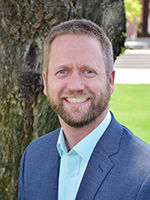
Eric Reid, PhD, CCC-SLP
Professor Reid is the Program Director for the Bachelor's degree program in Communication Sciences and Disorders in the School of Allied Health at Loma Linda University. He holds a Bachelor’s degree in Music, Master of Science Degree in Communication Sciences and Disorders, and a Ph.D. in Rehabilitation Science.

